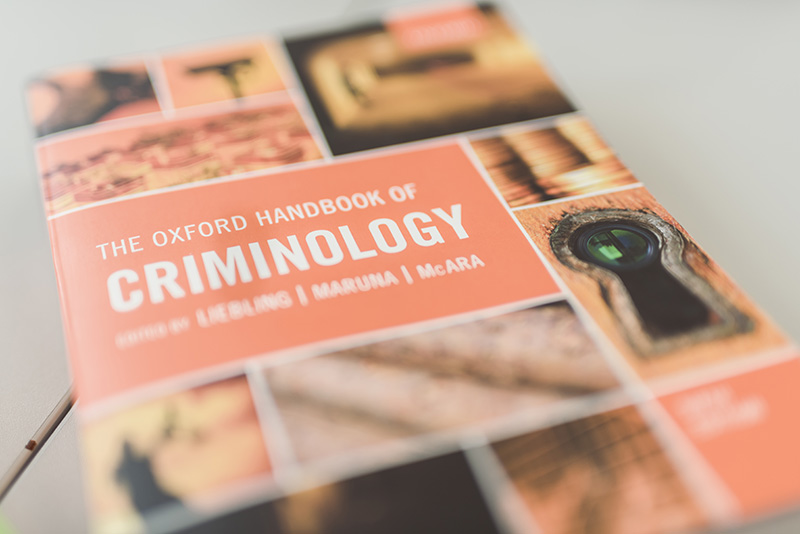BSc (Hons) Professional Policing

Course details
UCAS Code
243H
Year of entry
2025, 2026
Duration
3 YRS (FT)
UCAS Tariff
96-112
Institution Code
G53
Location
Wrexham
Course Highlights
Top 5
in the UK for Student Satisfaction*
Gain
additional qualifications
Use
specialised policing facilities
Why choose this course?
Our Professional Policing degree equips you with the knowledge and skills required for a modern policing career. Engage in scenario-based learning, lectures, and seminars led by experienced academics and former police officers, ensuring you're prepared to meet the demands of the 21st-century police service.
You will:
- Learn from experienced academic staff and retired police officers, providing real-world insights.
- Access specialised facilities such as an onsite 'Learning House' and mock police interview rooms.
- Build strong links with public service and third-sector organisations involved in policing.
- Benefit from collaborations with North Wales Police and other regional forces.
- Earn additional qualifications, such as Welsh in the Workplace, tailored to the needs of regional police forces.
*This course is part of a subject area ranked top 5 in the UK for Student Satisfaction in the Law subject area league table in the Complete University Guide 2026.
*This course is part of a subject area ranked:
- Top 10 in the UK for academic support, as well as assessment and feedback, student voice, and organisation and management.
- Top 5 out of Wales, Scotland, and Northern Ireland for overall satisfaction.
- Top 5 in the UK for mental wellbeing support awareness.
National Student Survey, 2024






Policingat WU
Watch to hear from students on our BSc (Hons) Professional Policing
Key course features
- During the course, you will participate in simulated policing encounters, including an annual Major Incident Day, to develop practical skills.
- You will have opportunities to become special constables during the course, gaining hands-on experience and contributing to the local community.
- The course will develop your knowledge of the broader criminal justice system and skills for effective public engagement.
- You will gain necessary legal knowledge and transferable skills to meet operational police requirements.
- Your employability will be enhanced through practical training throughout the course in facilities such as the police custody training suite.
What you will study
Year 1 (Level 4)
In the first year, you'll be introduced to key concepts and principles in policing, developing foundational skills and knowledge required for the police constable role.
Modules:
- Study Skills in Higher Education: Develop essential academic skills, including research, critical thinking, and effective communication.
- Understanding the Police Constable Role: Gain an overview of the roles, responsibilities, and challenges faced by police constables.
- Police Professionalism: Explore the importance of professional standards, ethics, and integrity in policing.
- Police Law: Examine key legal frameworks and legislation underpinning policing in England and Wales.
- Criminal Justice: Study the structure and processes of the criminal justice system and its interaction with the police.
- Decision Making and Leadership: Focus on leadership and decision-making within policing, especially in challenging situations.
Year 2 (Level 5)
In the second year, you will build on foundational knowledge, delving deeper into specific areas of policing such as information management, digital policing, and the application of police powers.
Modules:
- Information and Intelligence in Policing: Learn to manage and use intelligence to inform policing strategies and operations.
- Digital Policing: Understand the impact of digital technologies on policing, including cybercrime and technological investigations.
- Roads Policing: Cover key elements of roads policing, focusing on legislation, enforcement, and associated challenges.
- Applying Police Powers: Learn about the legal powers available to police officers and their practical application.
- Response Policing: Examine challenges associated with first-response policing, including public order management and emergencies.
- Police Investigations 1: Explore the investigative process and how to conduct professional and effective investigations.
Year 3 (Level 6)
In the third year, you will engage with advanced topics in policing, culminating in a dissertation project. This year focuses on applying knowledge and skills in complex policing contexts, including multi-agency working and contemporary challenges.
Modules:
- Dissertation (40 credits): Students will conduct independent research on a topic of their choice, culminating in a written dissertation that demonstrates their ability to engage in critical analysis and present research findings.
- Trauma, Vulnerability, and Wellbeing in Policing (20 credits): This module examines the impact of trauma and vulnerability on individuals in the criminal justice system and the role of the police in safeguarding their wellbeing.
- Police Investigations 2 (20 credits): Building on the previous investigations module, students will engage with more complex investigative processes, including managing serious crimes and working with specialist units.
- Multi-Agency Working in the Criminal Justice System (20 credits): This module focuses on the importance of collaboration between different agencies, such as police, social services, and healthcare providers, in managing criminal justice cases.
- Policing Contemporary Communities (20 credits): Students will critically assess the challenges faced by police in modern communities, including issues of diversity, cohesion, and community safety.
The information listed in this section is an overview of the academic content of the programme that will take the form of either core or option modules. Modules are designated as core or option in accordance with professional body requirements and internal academic framework review, so may be subject to change.
Entry requirements & applying
Minimum entry requirements are:
-
96-112 UCAS points or equivalent e.g. Pass in an Access to Higher Education programme with 15 level 2 credits, 45 level 3 credits to be graded following the rules of a combination as follows: 6 Distinctions, 33 merits, 6 passes
-
The applicant must demonstrate in their UCAS personal statement a readiness to engage in Higher Education and the motivation, in particular, to undertake a BA (Hons) Professional Policing degree.
OR
-
Entry to the degree is also possible where an applicant is able to demonstrate that prior and/or experiential learning will enable them to cope with the academic and professional demands of the programme.
Subject to the availability of places, applicants meeting either of these requirements would receive an offer of an interview. At the interview, applicants’ readiness to engage in higher education and their motivation and presenting eligibility to undertake the Policing degree would be explored further.
Teaching & Assessment
You'll be taught through a combination of lectures, seminars, and scenario-based learning, including simulated policing encounters. The workload includes a mix of theoretical and practical sessions, with opportunities for inter-professional learning. Assessment methods comprise essays, exams, presentations, role-plays, and a dissertation project.
Teaching and learning
We offer workshops and support sessions in areas such as academic writing, effective note-making and preparing for assignments.
Students can book appointments with academic skills tutors dedicated to helping deal with the practicalities of university work. Our student support section has more information on the help available.
In terms of particular needs, the University’s Inclusion Services can provide appropriate guidance and support should any students require reasonable adjustments to be made because of a recognised prevailing disability, medical condition, or specific learning difference.
Career prospects
Our dedicated Careers and Employability team is committed to helping you achieve your professional goals. They provide personalised advice, useful resources, and extracurricular employability events to prepare you for the job market.
Graduates of this course can pursue careers such as:
- Police Constable
- Police Community Support Officer (PCSO)
- Criminal Investigator
- Intelligence Analyst
- Fraud
- Civil Service roles
- Cybercrime Investigator
- Border Force Officer
- Prison Officer
Additionally, you may choose to further your expertise through postgraduate studies. Explore our postgraduate courses for more information.
Fees & funding
You do not have to pay your tuition fees upfront.
The fees you pay and the support available will depend on a number of different factors. Full information can be found on our fees & finance pages. You will also find information about what your fees include in the fee FAQs.
All fees are subject to any changes in government policy, view our undergraduate fees.
Programme specification
You can see the full programme specification here.Accommodation
At Wrexham University, we offer on-campus en-suite rooms within our Wrexham Student Village. These private, fully furnished spaces are conveniently located, providing easy access to campus facilities, study areas, and social spaces. Plus, you’re just a 10-minute walk from the city centre!
With all bills included, free Wi-Fi, 24/7 security, and large social areas, you’ll find everything you need for a great student experience.
Explore our student accommodation options to find your perfect home away from home.
Upcoming Open Days.
Join us at an upcoming open day to meet your lecturers, find out more about our courses, discover our facilities and get a taste of student life.
Browse all of our open days & events.

Take part in our annualreal-time training exercise
A high-profile Major Incident Day learning simulation is held each year, with students from a range of courses acting out, witnessing, investigating and reporting on a high-profile crime on campus



